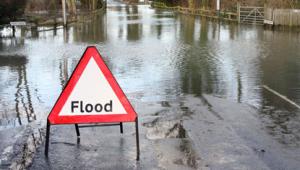Environment secretary Michael Gove has set out a range of measures to cut air pollution and improve public health.
“Air quality has improved significantly since 2010 but 60 years on from the historic Clean Air Act a clear truth remains – air pollution is making people ill, shortening lives and damaging our economy and environment,” Gove said.
Among the policies in the Clean Air Strategy is new primary legislation to give councils power to crack down on illegal smoke emissions in smoke control areas.
The strategy states: “We will focus on a nationwide approach to smoke control, which can be built upon as appropriate by local authorities.
“We will give local authorities powers to go further in areas of high pollution, for example exploring what further steps government can take to enable local authorities to encourage ‘no burn days’ during high-pollution episodes.”
Martin Tett, the LGA’s environment spokesman, said: “Councils recognise the impact that harmful emissions have on our communities and are determined to tackle it in all its forms.
“If the government’s air quality plans are to be successful, they not only need to be underpinned by local flexibility and sufficient funding but also accompanied by robust national action.”
Among the objectives of the clean strategy are halving the number of people living in areas where concentration of ‘particulate matter’ are above World Health Organization guideline limits of 10 ug/m3 and legislation to ensure only clean domestic fuels are available for sale.
It also plans to tackle ammonia emissions generated by the farming sector and collaborate internationally on new standards for exhausts and brakes to reduce vehicle emissions.
Health secretary Jeremy Hunt also announced a new tool for local authorities to help them estimate the economic impact of air pollution in their areas.
Hunt said: “Our health service can only go so far in treating the conditions that dirty air can contribute to, and we have a responsibility to stop this issue at source.
“[The] Clean Air Strategy and air pollution tool do just that, taking a giant step towards cleaning up our air for good.”
Read Debbie Wood of the Chartered Institute of Environmental Health make the case for a new Clean Air Act in a blog for PF.











